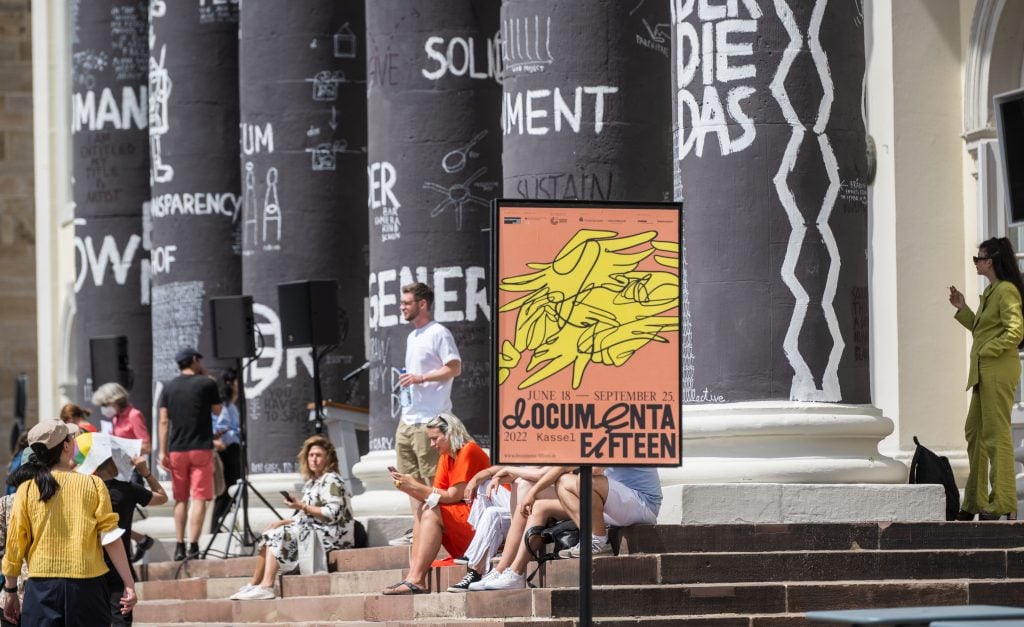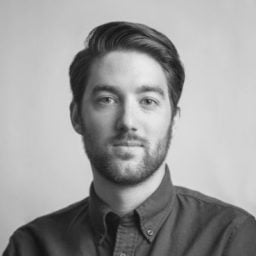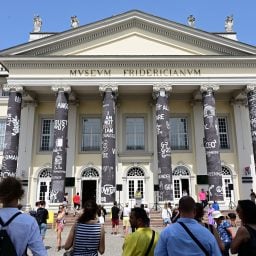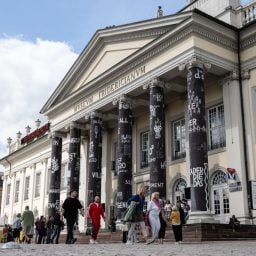The organizers of Documenta have released a statement condemning members of ruangrupa, the Indonesian art collective that organized last year’s edition of the quinquennial show, for supporting pro-Palestinian social media posts after Hamas’s attack on Israel this weekend.
The statement, attributed to Documenta managing director Andreas Hoffmann, said that two of ruangrupa’s members “liked” an Instagram video that showed people chanting “viva Palestine” and “Palestine will be free” during a demonstration in Berlin. Hoffmann called the curators’ support of the footage “unbearable and unacceptable,” and said that Documenta “distances itself from this in the strongest possible terms.”
When reached for comment, the two ruangrupa members in question, Reza Afisina and Iswanto Hartono, said they mistakenly thought the video showed police breaking up a pro-Palestine demonstration that took place in Berlin in September, before Hamas’s attacks. They called their engagement a “mistake” and have since “un-liked” the content.
“The current news about the war shows how brutal and incredibly terrible violence against innocent people is. How could we ‘rejoice’ on such news?” Afisina and Hartono said. “Our prayers, sympathies, and strength go out to the victims and their families. It was inconceivable and devastating news to learn that this is happening.”
“The news that we might be advocating violence is absurd and not true. It is a preposterous accusation,” the duo added. “[We] can now only hope and pray that goodness and peace will happen soon. There is no need for any more casualties.”
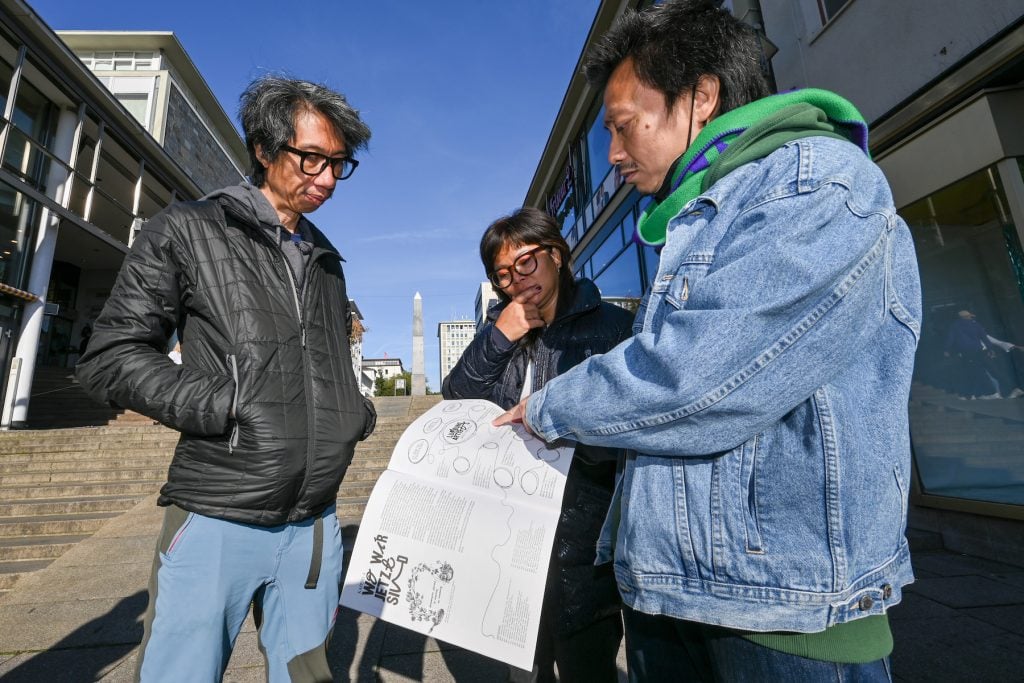
Left to right: Iswanto Hartono, Daniella Fitriap and Reza Afisina from the artist collective ruangrupa in front of the ruruHaus in the October issue of Asphalt with the complete artist list of the exhibiting artists of documenta. (Photo by Uwe Zucchi/picture alliance via Getty Images)
In the art world, the devastating conflict reignited accusations of antisemitism that have been levied at ruangrupa even before the collective’s Documenta show opened in June 2022 and has continued well past its closing three months later.
Ahead of the opening last year, German media outlets ran unconfirmed reports that ruangrupa members had ties to the Palestinian-led Boycott, Divestment, and Sanctions movement. The group vehemently denied the accusations, but claims of antisemitism continued to linger. The row again came to a head during the show’s preview, when visitors called out stereotypical depictions of Jews in a mural by one of the participating art collectives, Taring Padi.
In a 133-page report released in January, an advisory panel hired to investigate the controversy found that ruangrupa’s Documenta show “served as an echo chamber for Israel-related antisemitism and sometimes pure antisemitism.”
“The terrorist events and the reactions to them occur at a time in which Documenta… is actively trying to regain the trust of Jews and the general public in view of the antisemitic transgressions of last summer,” said Hoffmann. “The current circumstances,” he continued, “show once again that a discussion or understanding around the scandal of antisemitism at Documenta fifteen has not yet been successful.”
Hamas’s attacks have stoked fierce political debates in other pockets of the art world, too.
On her Instagram story, Bethlehem-born Palestinian artist Emily Jacir posted a photo of an elderly Israeli woman being abducted by Hamas militants with a comment that read, “This captured settler looks happy. I hope they feed her a good Palestinian dish.” The Palestinian-born artist Jumana Manna shared images of citizens fleeing from Israel’s Tribe of Nova music festival amid an assault that resulted in one of the deadliest massacres in the country’s history. “Ain’t no fun raving in the vicinity of the world’s largest prison,” she wrote. (Both posts have since expired.)
In an op-ed for the German news outlet Welt, author Boris Pofalla cited Jacir and Manna’s posts within the broader context of the European art world’s relationship to Israel, as he sees it.
“The art world, as was already evident in the defiant, apologetic reaction to Documenta Fifteen, has willingly opened itself up to every anti-Israel cliché over the last 10 years,” Pofalla wrote. “It has allowed anti-Semites into its institutions and declared propaganda to be important.”
